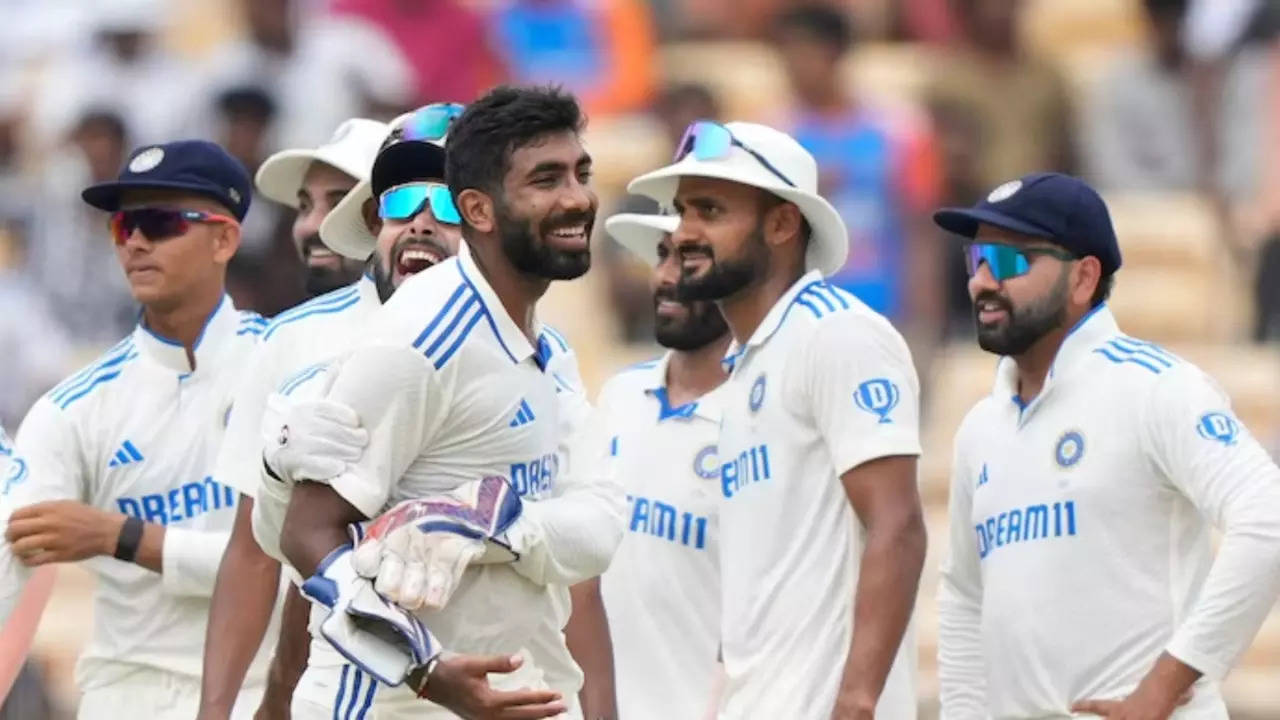 |
|
The recent Border-Gavaskar Trophy series between India and Australia ended with a resounding 1-3 defeat for the Indian team. However, the loss is overshadowed by a far more damaging revelation: allegations of serious infighting within the Indian cricket squad. A report in The Indian Express ignited a firestorm, alleging a breakdown in team leadership, with Rohit Sharma reportedly losing his authority in the dressing room. The report further claimed a senior player attempted to install Gautam Gambhir as an interim captain, a move designed to address the perceived leadership vacuum and restore order within the fractured team dynamic. Speculation immediately arose regarding the identity of this influential senior player, dubbed 'Mr. Fix-It' by the media, with names like Rishabh Pant and Jasprit Bumrah surfacing in the rumor mill.
Former Indian cricketer Robin Uthappa, known for his outspoken nature, added fuel to the fire by publicly naming two senior players as the potential 'Mr. Fix-It' culprits. In an interview with Lallantop, Uthappa implicated Virat Kohli and KL Rahul, two pillars of the Indian team, as the individuals who may have sought to intervene and potentially undermine Rohit Sharma's captaincy. While acknowledging the perceived youthfulness of KL Rahul in comparison to other senior players, Uthappa pointed out his considerable tenure in the national team, spanning eight to nine years, suggesting his experience and influence within the team dynamic.
Uthappa's comments were not limited to simply naming potential suspects. He expressed profound disappointment and disapproval of the alleged actions, suggesting a lack of responsibility and maturity from the individuals involved. In a subsequent video posted on Instagram, Uthappa called for the ‘Mr. Fix-It’ to be named and publicly shamed, highlighting the damaging consequences of such internal conflicts on team morale and performance, especially during a crucial series like the Border-Gavaskar Trophy. He stressed the importance of unity and professionalism, arguing that prioritizing personal agendas over team success is unacceptable and detrimental to the overall performance of the Indian cricket team.
The accusations and subsequent revelations have sparked intense debate within the cricketing world and among Indian fans. The alleged actions have raised concerns about the internal dynamics within the team and the potential for such conflicts to negatively impact future performances. The integrity and professionalism of the individuals implicated are now under intense scrutiny, as the revelations cast a dark shadow over the reputation of Indian cricket. The incident highlights the potential fragility of team cohesion, even among seasoned players, and the crucial role of strong leadership in maintaining a healthy and successful sporting environment. The lack of transparency and the apparent internal power struggles have left many questioning the future leadership of the Indian cricket team and the need for significant reforms to prevent similar incidents from occurring in the future.
The impact extends beyond mere sporting performance; it affects the national pride and expectations associated with the Indian cricket team. The team's unity and strong leadership are vital for maintaining public trust and fostering a positive image for the sport. The accusations, even if ultimately proven false, represent a significant blow to the morale of the team and raise serious questions about the culture of accountability and responsibility within the squad. The incident underscores the vital importance of strong leadership, team cohesion, and a culture of mutual respect and professionalism in achieving consistent success at the highest levels of competitive sport.
The situation also brings into focus the challenges of managing complex interpersonal relationships within high-pressure professional environments. The competitive nature of elite sports often intensifies existing tensions, and the pressure to perform at peak levels can exacerbate personal conflicts and rivalries. Finding solutions to manage these complexities requires not only strong leadership skills but also effective communication strategies and a commitment to creating a positive and supportive team culture. The current crisis in the Indian cricket team serves as a cautionary tale for other sporting organizations, highlighting the need for proactive measures to identify and address potential conflicts before they escalate to undermine team unity and performance.
Looking forward, the Indian cricket board will undoubtedly need to address this situation decisively. A thorough investigation is necessary to determine the validity of the allegations and to take appropriate disciplinary action if necessary. Beyond immediate action, the board should focus on implementing strategies to improve team communication, conflict resolution, and the overall management of team dynamics. Investing in leadership training and promoting a culture of open dialogue and mutual respect are crucial steps in preventing future conflicts. The long-term health and success of the Indian cricket team depend heavily on the board's ability to learn from this experience and create a more supportive and cohesive environment for its players.
